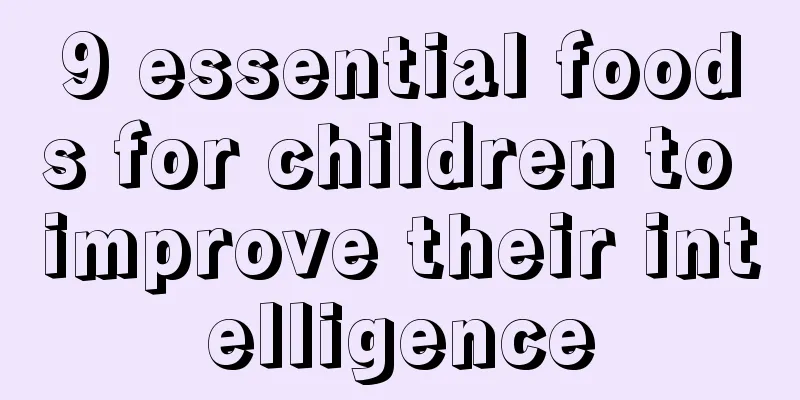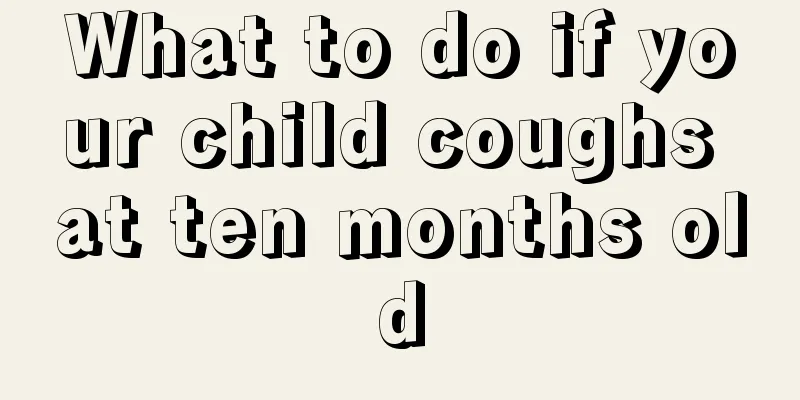What to do if your baby is allergic to tomatoes

|
The baby grows up day by day. After six months, breast milk can no longer fully meet his needs, so it is time to add complementary foods. However, in this process of adding complementary foods, mothers encounter new problems, that is, food allergies. Some babies are allergic to eggs, some are allergic to tomatoes, and there are many more. Due to the differences in each baby's body, every food may cause allergies. Today, let's talk about the problem of baby food allergies. Food allergy is a complex allergic disease. Generally, most allergic reactions are divided into two categories: immediate (rapid) and delayed. Most food allergies are immediate reactions, which usually occur within a few minutes to an hour after eating. In severe cases, anaphylactic shock may occur within 1 minute. Delayed allergic reactions may take several hours, a day, or even 2-3 weeks to occur. Common symptoms of food allergy * Digestive system: nausea, bloating, severe abdominal pain, diarrhea, bad breath, burping, and flatulence. * Skin system: eczema, urticaria, dry skin, dark circles. * Nervous system: irritability, restlessness, and difficulty concentrating. * Respiratory system: shortness of breath, chest tightness, irritating cough, difficulty breathing, and clear runny nose. * Audiovisual system: blurred vision, swollen eyelids, conjunctival congestion, tearing, hearing loss, slurred speech. * Reproductive system: edema and itching of external genitalia. 2 tips for dealing with allergic babies at home 1. Do an allergen test If you suspect your baby may have food allergies, parents should take the child to a qualified hospital for allergen testing. This test only requires 1 ml of blood to be drawn and then tested using enzyme-linked immunosorbent assay, and the results can be obtained in about 3 hours. 2. Develop a food restriction plan You must strictly follow the doctor's instructions and never give up halfway because you are worried that your baby will eat less certain foods and affect his health. It is particularly important to note that if you must abstain from eating a certain food, you must also avoid other foods that contain the same allergic ingredient. Through the above detailed introduction to food allergies, everyone knows that no matter it is an egg allergy or the baby is allergic to tomatoes, we must carefully observe every new food the baby eats. Only in this way can we know what the baby is allergic to and not eat it. If the situation is serious, we must go to a regular hospital to seek help from a doctor. |
<<: Causes of baby's skull protrusion
Recommend
What to eat to improve intelligence? This thing is good for your brain!
A child's intelligence and IQ determine his f...
How to remove stretch marks on children’s thighs?
I believe many people have this trouble, that is,...
What to do if your newborn has a lump on his chest
When a newborn shows any abnormalities, a physica...
Four-year-old with autism
The onset of autism in a four-year-old child has ...
How to prevent eyestrain
Because of my work, I always have to face the com...
What are the symptoms of rhinitis in children?
The incidence of rhinitis is particularly high, e...
Injections to boost lung function in premature infants
For premature babies, the respiratory system is n...
What to do if your baby coughs badly in the middle of the night
We all know that only by ensuring adequate sleep ...
A three-year-old baby has a bag on the right side of his neck
It is likely that a baby will not have a smooth g...
Four-month-old baby has fever on the back of his head
For a four-month-old baby, because he is still yo...
What causes eczema on children’s buttocks?
Nowadays, children are vital to every family. So ...
What are some recipes for home-cooked meals for young children?
In our lives, whether babies can eat healthily is...
What is the height and weight of a 36-month-old baby?
As we all know, giving birth to a baby is not an ...
A child has a hole in his heart
Babies are the hope of parents. Parents will spen...
What are the symptoms of hemolysis in babies?
When a newborn baby shows symptoms of jaundice an...









